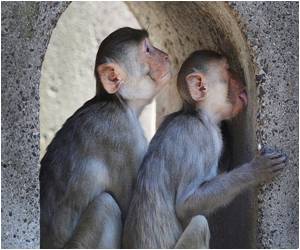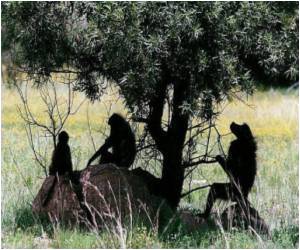Scientists have identified neutralizing antibodies that offers protection to monkeys against SIV (simian immunodeficiency virus) infection.

Scientists administered the SIV vaccine to half of the 129 monkeys in this study and a placebo vaccine to the other half.
The scientists then gave each monkey up to 12 doses of one of two forms of SIV through rectal injection to simulate sexual exposure to the virus.
The vaccine regimen did not protect the monkeys that received one form of SIV, but it reduced the rate of infection by 50 percent in the monkeys that received the other form of the virus.
To learn how the vaccine worked, the study team examined a variety of immune responses and certain genetic factors in the monkeys that the vaccine protected.
The scientists found that SIV neutralizing antibodies and the activation of white blood cells known as helper CD4 plus T cells correlated with the protective effect.
Advertisement
This study provides evidence that neutralizing antibodies are an important part of the immune response needed to prevent HIV infection.
Advertisement
The new research also provides an animal model to better understand the immune basis for vaccine protection against lentiviruses, a subclass of viruses that includes HIV and SIV.
Source-ANI











